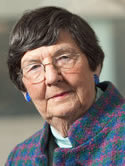Early childhood adversity and its associations with anxiety, depression, and distress in women with breast cancer Journal Article
| Authors: | McFarland, D. C.; Andreotti, C.; Harris, K.; Mandeli, J.; Tiersten, A.; Holland, J. |
| Article Title: | Early childhood adversity and its associations with anxiety, depression, and distress in women with breast cancer |
| Abstract: | Background: Certain vulnerability factors have been found to place patients at risk for depression and anxiety, especially within the context of medical illness. Objectives: We sought to describe the relationships among early childhood adversity (ECA) and anxiety, depression and distress in patients with breast cancer. Methods: Patients with breast cancer (stages 0-IV) were assessed for ECA (i.e., the Risky Families Questionnaire subscales include Abuse/Neglect/Chaotic Home Environment), distress (i.e., Distress Thermometer and Problem List), anxiety (Hospital Anxiety and Depression Scale-Anxiety), depression (Hospital Anxiety and Depression Scale-Depression), meeting standardized cut-off thresholds for distress (Distress Thermometer and Problem List ≥4 or ≥7)/anxiety (Hospital Anxiety and Depression Scale-Anxiety ≥8)/depression (Hospital Anxiety and Depression Scale-Depression ≥8) and demographic factors. Results: A total of 125 participants completed the study (78% response rate). ECA was associated with depression (p <0.001), anxiety (p = 0.001), and distress (p = 0.006), meeting cut-off threshold criteria for distress (p = 0.024), anxiety (p = 0.048), and depression (p = 0.001). On multivariate analysis, only depression (p = 0.04) and emotional issues (i.e., component of Distress Thermometer and Problem List) (p = 0.001) were associated with ECA. Neglect, but not Abuse and Chaotic Home Environment, was associated with depression (β = 0.442, p < 0.001), anxiety (β = 0.342, p = 0.002), and self-identified problems with family (β = 0.288, p = 0.022), emotion (β = 0.345, p = 0.004), and physical issues (β = 0.408, p < 0.001). Conclusion: ECA and neglect are associated with multiple psychologic symptoms, but most specifically depression in the setting of breast cancer. ECA contributes to psychologic burden as a vulnerability factor. ECA may help to explain individual patient trajectories and influence the provision of patient-centered care for psychologic symptoms in patients with breast cancer. © 2016 The Academy of Psychosomatic Medicine. |
| Journal Title: | Psychosomatics |
| Volume: | 57 |
| Issue: | 2 |
| ISSN: | 0033-3182 |
| Publisher: | Elsevier Science, Inc. |
| Date Published: | 2016-03-01 |
| Start Page: | 174 |
| End Page: | 184 |
| Language: | English |
| DOI: | 10.1016/j.psym.2015.11.008 |
| PROVIDER: | scopus |
| PUBMED: | 26876888 |
| PMCID: | PMC5023013 |
| DOI/URL: | |
| Notes: | Article -- Export Date: 4 April 2016 -- Source: Scopus |
Altmetric
Citation Impact
BMJ Impact Analytics
Related MSK Work






